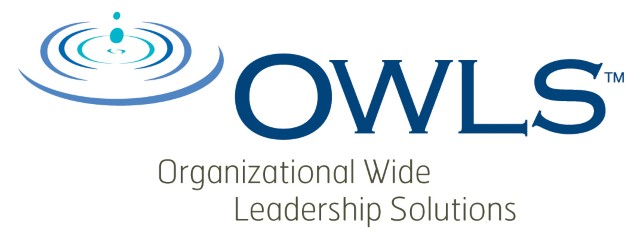When you think about relationships–having a relationship, being in relationship– what comes to mind? The first people most of us think about when we think about relationships are, well, relations. Our family, spouse, the people we care about most and know best.
What doesn’t come to mind so readily is people we work with. Yet most of our waking time is spent around these people. Certainly, we talk about teams, about the importance of “working relationships.” But the difference is that these work place relationships are typically more transactional than they are personal. Aside from the “how are you,” or “let’s do lunch,” we mainly deal with each other on the basis of what we want to get from someone or what they expect to get from us. Too often, these relationships are based on what we do rather than who we are.
When a new employee joins the company “team,” you don’t just get a set of capabilities that match up well with the corporate-speak in a job description. You get a whole person with talents, strengths, values and concerns that extend far beyond the narrow confines of what any job description could include. That person also comes with certain degrees of insecurities, fears and self-doubts.
The spirit or culture of an organization is a collective of the individuals in it. A collective of the whole individuals passed through the prism of corporate policy and whatever unwritten rules are built into the company’s tradition.
There was a fellow who showed up at IBM for his first day of work wearing a tweed sport coat and light-colored slacks. In that sea of dark blue, pinstriped three piece suits, he stuck out like brown shoes with a tuxedo. He had missed one of the unwritten rules. The way his “team mates” saw it, if he couldn’t figure out the most obvious rule of belonging (the corporate suit), how in the world was he going to figure out the more subtle rules? His stay with IBM was short.
The point is that organizations have rules, policies and procedures–some written, many not– that influence how people relate to each other on the job. These rules excerpt a heavy influence. Heavy but they do not have to be the determining factor on how we work together. In the end, how we relate to our team mates is up to us- whether we see other employees as threats to our territory, competitors or capable allies is up to us.
If we want to, we can change transactional relationships into personal ones by taking time to know each other. There’s a Native American tradition of the talking stick. Nowadays, this talking stick is seen mostly on sit-coms where whacky men go into the woods for a weekend of bonding, getting in touch with their hunter-warrior sides, wearing loin clothes and reading anything by Robert Bly.
But the talking stick tradition once meant something more. When a decision was being made, the group sat in a circle and the talking stick was passed. Whoever held the stick expressed his or her views while everyone else listened. If you didn’t hold the stick, you couldn’t speak. When the stick was passed to the next person, before expressing her or his views, that person had to articulate the views of the prior person to that person’s satisfaction.
That custom did a couple of things. It encouraged dialogue rather than discussion and it created a real appreciation for the views, concerns, hopes and fears of the other people on that “team.” It helped create community. You come to appreciate a point, even one contrary to yours, when you must state that stance clearly and with a degree of passion.
With the ever-increasing workloads, time constraints and quotas that we all work under, the overwhelming pressure is to keep our work relationships transactional. But that eventually leads to focusing on problems–what’s going wrong and how are we going to fix it. We forget that in every group, in every person, something works. And, that what we focus on becomes our reality. When we focus on problems, that’s what we find. But, focus on what the group does well, and the team will find ways to do more of it.
The most important problems are rarely solved or healed. They are out grown. We can help our teams outgrow their problems by investing time in our relationships. By directing our energy toward what might be rather than what we might want to eliminate.
Taking time after or– maybe even better– before a staff or departmental meeting to engage in some team oriented activities for as little as ten or 15 minutes, can help us know each other better.
Here are a couple of things you might try at your next team gathering:
1) Instead of concentrating on problems, brainstorm times when the team was working at a really high level and explore how that same experience might be created in other areas;
2) Break your team into pairs, spend five minutes (no less) with one partner describing what his/her typical workday is like. The other just listens, responding only with “What happened next?” or “Tell me more”– no judging or contributive remarks allowed. Then, switch roles and repeat the process. Afterwards, share with the larger group what you discovered, what this might mean for the rest of the people you work with;
3) Have the group stand in a circle. One person points to another. That person points to another, and so on until the last person points back at the first person. Stop pointing and drop your hands. The person you had been pointing at is your “Model.” Now, tell everyone to watch his or her Idol closely and copy her or his every action. Then, ask everyone to stand perfectly still. No one may move unless their Model does. If your Model moves, you must copy the movement precisely. After, talk about: What happened? Who started the movement? How much does it really matter who started it once it got going? How much energy do we expend on a daily basis looking to place, or avoid, blame? How does each of us contribute to perpetuating behaviors and attitudes that eventually become unhealthy team norms? How does this apply to our work?
The better we know each other, the harder it becomes to treat each other as threats, adversaries or even to remain neutral in our relationships. The more authentic we are with each other, the more we put our whole selves out there, the more we may come to appreciate and support one another. And, the more we may base our relationships and work on humans be-ing rather than humans do-ing.
By James M. Grossman






Leave a Reply